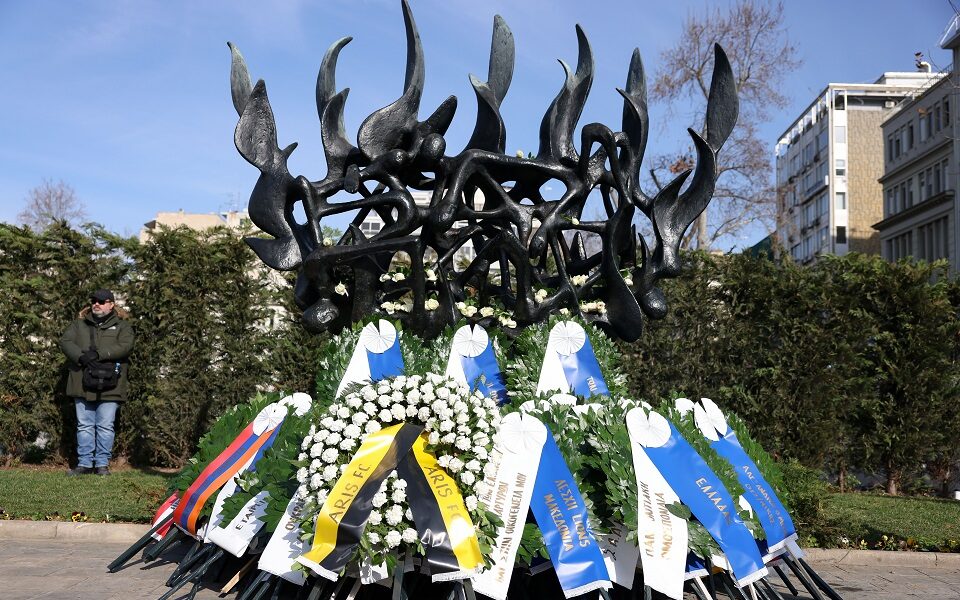Antisemitism in Greece

Along with the rest of the world, Greece last week paid tribute to the memory of the victims of the Holocaust. Events were held, documentaries screened, interviews published and lectures given, many of which were emotionally laden with memories of the terrible ordeals of World War II that led to the eradication of almost 90% of the country’s Jews.
The heroism and determination of many Greeks who resisted bravely and helped Jews survive was also highlighted, with the example of Archbishop Damaskinos standing out, along with those of the Metropolitan Bishop of Zakynthos Chrysostomos and the Ionian island’s mayor, whose actions are taught in schools in Israel and should serve as the bar against which we judge Hellenism’s relationship with the Jewish community.
In that vein, the percentage of the vote secured by Golden Dawn in the 2015 elections that got it into Parliament is a dark chapter in Greece’s modern political history that must be prevented from being reopened.
The neo-Nazi party’s popularity was obviously the result, to a significant degree, of the financial crisis, anger with the system and with endemic corruption and the injustices and inequalities that emerge in day-to-day life. But this reaction cannot be expressed by voting for a party that espouses the Nazi ideology and symbols; certainly not in Greece, given its experience in WWII, the destruction and pain rained on the country during the German occupation, and the brave battles that were fought against Hitler.
Holocaust Remembrance Day came as an opportunity to think long and hard about such things. It is not just the extreme version of antisemitism expressed by Golden Dawn and its offshoots that should be of concern, but also the habit – which has, admittedly, been stronger in the past – of judging the Jewish people by the actions of the politicians of the state of Israel. Someone can disagree with Israeli government policy without becoming an antisemite. The Israeli people themselves are harsh judges of their governments through their many and diverse political parties.
That said, at a time when antisemitism appears to be on the rise in many parts of the world, younger Greeks appear to shun two basic elements of “Greek antisemitism:” The first is the conspiracy theory that Greeks are a nation that has been wronged by various malevolent forces, and the Jews bear in some conspicuous way some responsibility for this, and the second is a tendency to mix the justifiable reaction to specific policies by the Israeli political leadership, with – and this is definitely not justified – lashing out against Jews simply because they are Jews.
At the same time, the deepening cooperation between Greece and Israel – bilaterally and also trilaterally with Cyprus – is not just geopolitically desirable. It also brings the two peoples closer and in doing so deals another blow against antisemitism.





